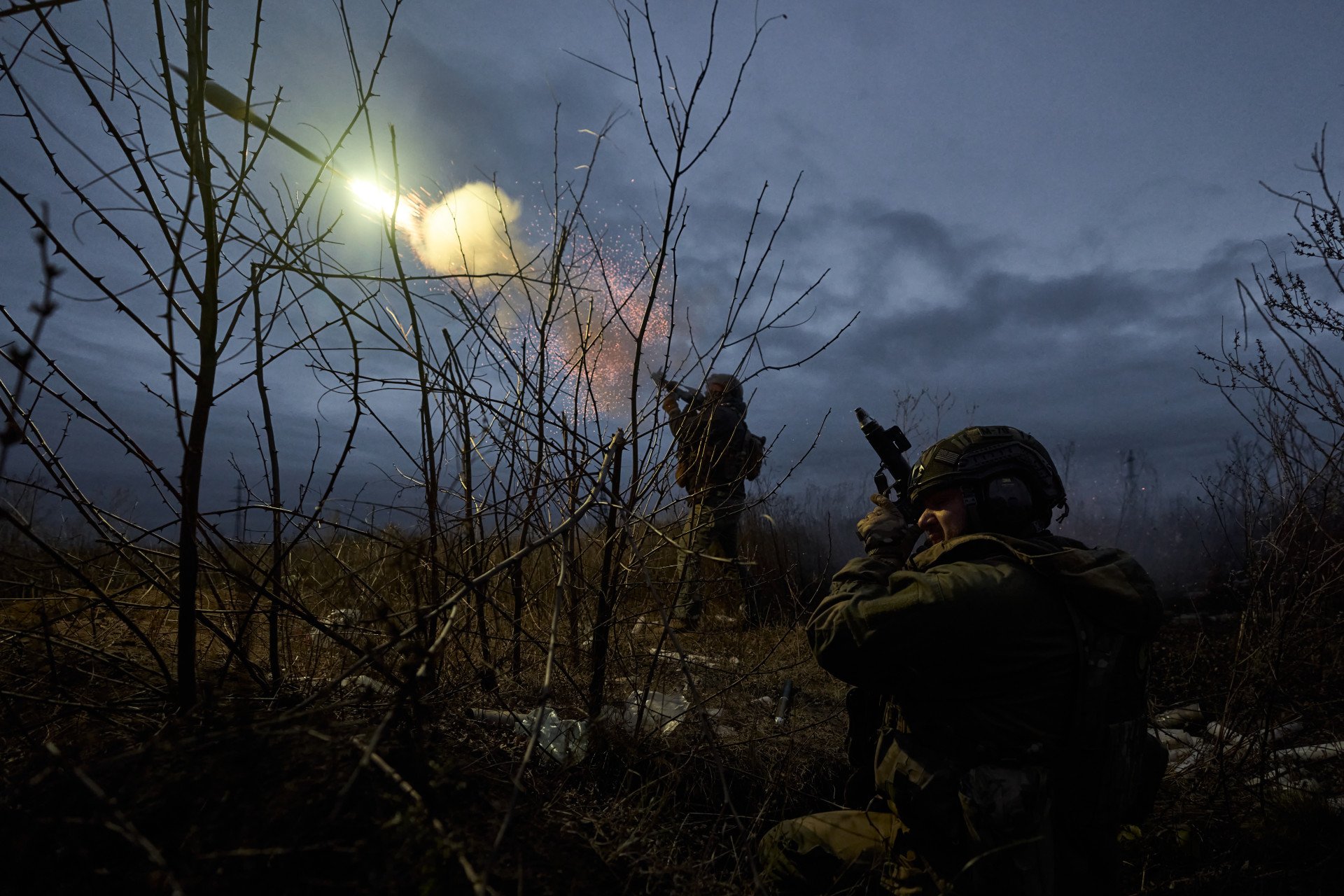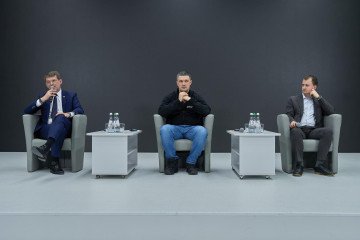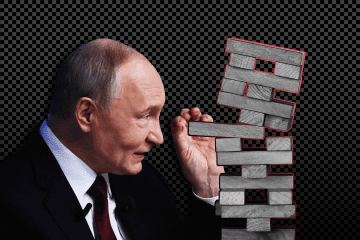- Category
- War in Ukraine
The US Has Approved a $61 Billion Aid Package to Ukraine. How Could It Impact the War?

With $60.8 billion in fresh US aid, Ukraine hopes to withstand a looming Russian offensive. The package prioritizes long-range missiles and air defense systems, which are crucial to counter Russia’s overwhelming firepower.
With Russia poised for a major new offensive, the recently approved US $60.8 billion aid package for Ukraine is crucial. Let’s break down the components of this aid and understand its significance.
The long-awaited aid package, approved in April 2024, is allocated across several components. For a more detailed breakdown, check out our previous article. In summary, the package focuses on three key tracks:
Replenishing US reserves;
Supplying arms directly to Ukraine;
Providing financial support to Ukraine and other affected countries.
This aid is crucial for Ukraine. While European partners are also allocating unprecedented levels of military and financial assistance in 2024, it remains insufficient when facing an adversary like Russia. Russia’s military budget for this year exceeds $115 billion, outspent only by the US and China. In contrast, Ukraine’s own military budget is around $40 billion — roughly a third of Russia’s. To achieve parity on the battlefield, Ukraine heavily relies on the support of its partners in both Europe and the US.
The United States is supplying Ukraine with billions of dollars in weapons. Here are several crucial components of the military aid package:
Surface-to-air missiles
Since the start of Russia’s full-scale invasion, Ukraine has faced over 5000 missiles of various classes, along with a similar number of Shahed UAVs. Air defense systems are essential for protecting Ukrainian cities and infrastructure. For example, a major Kyiv Oblast power plant could not be fully defended due to a lack of surface-to-air missiles. Ukrainian forces were able to intercept 7 out of 11 missiles, but lacked the resources to counter the remaining 4.
Artillery ammunition: Russia holds a significant advantage in artillery firepower, sometimes responding with ten shells for every one fired by Ukraine. This ammunition shortage is a critical challenge for the Ukrainian Armed Forces — the 155mm shells supplied by the US will be vital to address this issue.
Bradley and other equipment: US-supplied military vehicles have already proven their combat effectiveness. A notable example is the video of Ukrainian soldiers in a Bradley defeating a Russian T-90 tank. Equipping more Ukrainian units with this technology will bolster their ability to resist Russian attacks and conduct offensive operations.
ATACMS: The new US aid package includes ATACMS missiles with a range of up to 300km. This will significantly enhance Ukraine’s strike capabilities, allowing attacks against Russian forces in occupied Crimea and positions well behind the front lines. Ukraine has already demonstrated success with long-range strikes, using British and French Storm Shadow and SCALP missiles to sink a dozen Russian Black Sea Fleet ships.
This represents just a portion of the extensive US military aid to Ukraine. In total, hundreds of different types of support are being supplied. So why is this aid critically important?
Ukrainian officials anticipate a major Russian offensive on one of the frontlines in May-June. To fortify its defenses, Ukraine has already invested approximately $1 billion in fortifications across all potential routes of Russian advance. However, weapons are crucial to halt this offensive and prevent Russian forces from penetrating deeper into the country. ATACMS missiles and HIMARS ammunition enable Ukraine to strike Russian troop and equipment concentrations well behind the front lines, effectively disrupting the enemy’s advance before it begins.
Air defense remains a top priority. Russia’s advantage in aviation and its stockpile of cruise and ballistic missiles pose a constant threat to Ukraine’s critical infrastructure, especially its energy facilities. Since the start of the full-scale invasion, Russia has destroyed, damaged, or occupied a majority of Ukraine’s thermal power plants — a vital part of the country’s energy system. Without Patriot missiles, Ukraine will struggle to defend its infrastructure and cities.
Ukrainian President Volodymyr Zelenskyy has put it bluntly: Ukraine has no Plan B. The country cannot defeat such a formidable adversary without US assistance. For this reason, Ukraine depends on the support of the entire democratic world: Europe, Japan, Australia, Canada, and, crucially, the US.
Importantly, a significant portion of the aid designated for Ukraine, at least $23 billion, takes the form of contracts for American companies. These funds will be used to purchase new, modern weapons, ammunition, and missiles that will remain within the United States. Ukraine receives existing stock, with only a portion of the purchased items delivered in the future.
These substantial contracts for American manufacturers offer several benefits. They enable long-term planning, investment in production expansion, and job creation. US defense companies have secured billions of dollars in additional contracts over the past two years, strengthening the economic health of entire regions.
Additionally, this approach facilitates the modernization of the US military with new, advanced weapons. Ukraine has become a vital testing ground for promoting certain weapon types. American equipment, like the Bradley vehicle defeating the advanced Russian T-90 tank, has proven itself in ways previously not seen in combat. Patriot systems successfully intercept missiles Russia deemed unstoppable, showcasing capabilities unmatched in real-world warfare. Even the British openly acknowledge their desire to send Dragon Fire air defense systems to Ukraine specifically to test their battlefield effectiveness.
Finally, German Defense Minister Boris Pistorius highlights the urgency of rearming: “Russia is producing much more weaponry than necessary for the front, and it’s already heading towards stockpiles.” With an adversary as powerful and ambitious as Russia, it’s imperative for the West to be prepared.
Ukrainian Foreign Minister Dmytro Kuleba echoes this sentiment, stating that the “era of peace in Europe” is over and Russia is to blame. He emphasizes that while American aid is crucial for deterring the enemy, a single package will not be enough to halt Russia’s attempts to destabilize peace.
“No single package can stop the Russians,” Kuleba added. “What will stop the Russians is a united front of all of Ukraine and all of its partners.”
Cover photo: Liberov Kostiantyn.
-29a1a43aba23f9bb779a1ac8b98d2121.jpeg)

-f88628fa403b11af0b72ec7b062ce954.jpeg)
-051a89e5a5304a3f0a58cfb1746eda24.png)
-605be766de04ba3d21b67fb76a76786a.jpg)

-56360f669cb982418f455a4b71d34e4e.jpeg)

-206008aed5f329e86c52788e3e423f23.jpg)